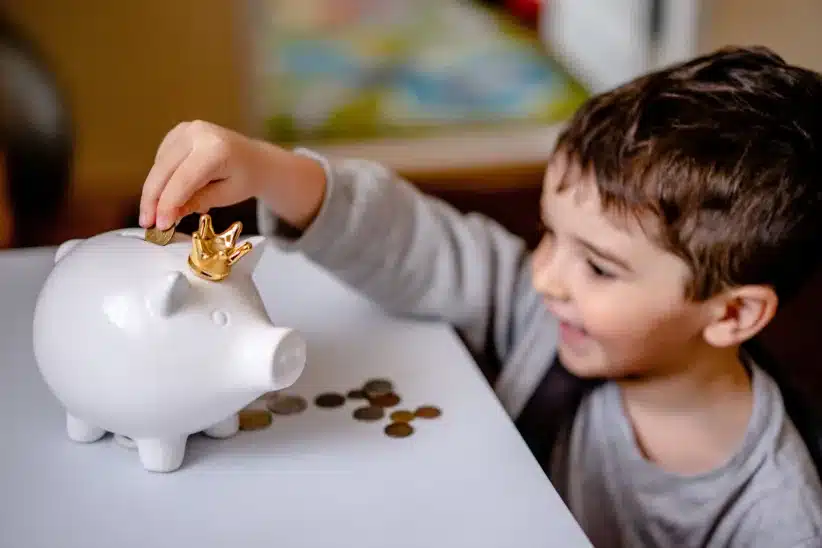
Camp is just a few months away and, by now, your children are most likely counting down the days until it begins. But as the beginning of summer approaches, you may be feeling a bit anxious about your child going to camp for a few weeks. Many parents experience “kid-sickness” (a phrase coined by child, adolescent, and family therapist Bob Ditter), when they have trouble separating from their children as they go to camp. Keep in mind these are natural feelings to have. Here are a few ways parents can help themselves cope with separation and ensure that their children have a wonderful time at camp.
Focus On The Positive, Not The Negative: Sure, you’re going to miss your child when he or she goes to camp, but remember the reason you chose to send your child to camp. You want to give your child the opportunity to build character, gain independence, and have fun in a caring environment. It is important for parents to share positive messages about summer camp. If your child senses that you are uneasy about him going to camp, it may influence how he feels about going. “What kids look for is the look in their parents’ eyes,” Ditter explains. “Are they afraid, worried, upset? They interpret the look in one or two ways. There is something unsafe or scary in the world, and I can’t go out and feel confident. Or, my leaving is too hard on my parents, so I need to stay and take care of them. Parents need to be aware of that and to be clear about the gift they are giving their kids: not camp, but that they will be okay in the world.”
Adjusting To Camp: Remember that kids adjust to a new experience and a new environment before parents get used to the next stage of development. Before your child leaves for camp, don’t make pick-up deals and offer to rescue your child from camp. Instead, offer positive encouragement that you know he or she will have a successful summer. “Although I was nervous about my son going to camp, I was very conscious to keep things upbeat and positive before he left,” says Jill Smith, parent of a 9-year-old first-time camper. “We talked about what I had loved about camp as a child, and my husband spoke with him about the possibility of homesickness and that it was a normal feeling to experience while away.”
Limit Calls To The Camp Office: While your child is at camp, try to abstain from calling the camp director with every thought or worry you may have about your child. When your child is at camp, allow him or her to solve their own problems or ask a counselor for help. “If a parent is getting a mommy or daddy funny feeling in the pit of their stomach, then by all means feel free to give the camp a call,” says Jeff Grabow, owner and director of Camp Echo, a coed sleepaway camp in Burlingham, NY. “Any camp worth their weight should be happy to look into your concerns. It’s important that the parent asks themselves if the feeling is concern for their child, or just missing their little person. If the staff in the office knows you by the sound of your ‘hello,’ you might be calling a bit too much.” Keep in mind that camp directors have your child’s best interests in mind and the skill to guide your child towards an appropriate level of independence, self-confidence, and success.
Online Photos: Many camps post hundreds of daily camp photos online to give parents a window into a camper’s life at camp. These pictures can be a great way to see all the activities your campers are doing. “I will admit, I checked the photos every day, once or twice a day,” says camp parent Akta Menon, whose daughter was at sleepaway camp for her second year this past summer. “My daughter’s letters were always very brief, so, if not for the pictures, I would have no idea what she was up to.” But these photos can also exacerbate any worries a parent may be having. “While camp photos are a wonderful way for parents to get a peek into a child’s summer activities, it is not uncommon for parents to scrutinize these pictures,” Grabow says. “The key is not to focus too much on an individual picture. No child walks around with a perma-grin, so don’t panic if they are not smiling in a picture.” Doug Katz, owner and director of Camp Lakota, a coed sleepaway camp in Wurtsboro, NY adds: “My advice to parents is to please take the pictures with a grain of salt and always know that the camp staff is watching over your child 24/7. If anything is truly wrong, you will be contacted right away.”
[gravityform id=”13″ title=”false” description=”false” ajax=”true”]
You’ve Taught Them Well: Feel confident that you have taught your child well and everything you instilled in him or her will stay intact while at camp. Separation from you will give your child confidence and the ability to problem-solve without your help.
Long Distance Communication: Many sleepaway camps allow for scheduled phone calls during the summer. “Phone calls can be great, however, the sound of a family member’s voice can throw even the best and most successful camper into a temporary tailspin,” Grabow says. “Keep the conversation light and tell the child how proud you are of them for being a camper. It is ok to miss your child, just try to avoid letting your child know how desperately you miss them or what a great time you are having at home.” If you receive a discouraging phone call or a letter from your child, remember that, like any new experience, adjusting to camp may take a few days and that severe homesickness is rare.
Camp Gives Parents A Break: Camp is also a chance for parents to have a break from the playdates, cooking, and homework help. It’s also a great time to take a vacation, spend more time with your spouse and friends, or have some one-on-one time with a child still at home. “I have one child at sleepaway camp, and a younger one still at home. We were able to focus on doing activities our younger daughter loved to do for a few weeks.” Menon says. Ditter adds that it’s important for parents to have a life outside of their children. “Kids need to know that their parents have their own separate, successful life without the kids or then why would they need to grow up? It’s good for them to see their parents with their own friends, going to the club, going to dinner, and playing tennis. As a kid, they want to know that if their parents are helping them to grow up, that there is something happy at the end of growing up,” he says.
As difficult as it may be for you to let your child go to camp, you are giving your child an opportunity to build confidence, gain resiliency, grow more independent, and try new activities. Try to keep this in mind if you become anxious at the thought of your child leaving for camp or while your child is there. “When my son went to camp for a month, I missed our sweet family of four,” Smith adds. “But our son had the time of his life and asked to go back the day we brought him home. He came home a different child—mature, responsible, empathetic, and confident. He also appreciated us more. His hugs have been more frequent and tighter, his room is a little neater, and his friendships are deeper.”
To read a list of camp dos and don’ts for parents, click HERE!





















